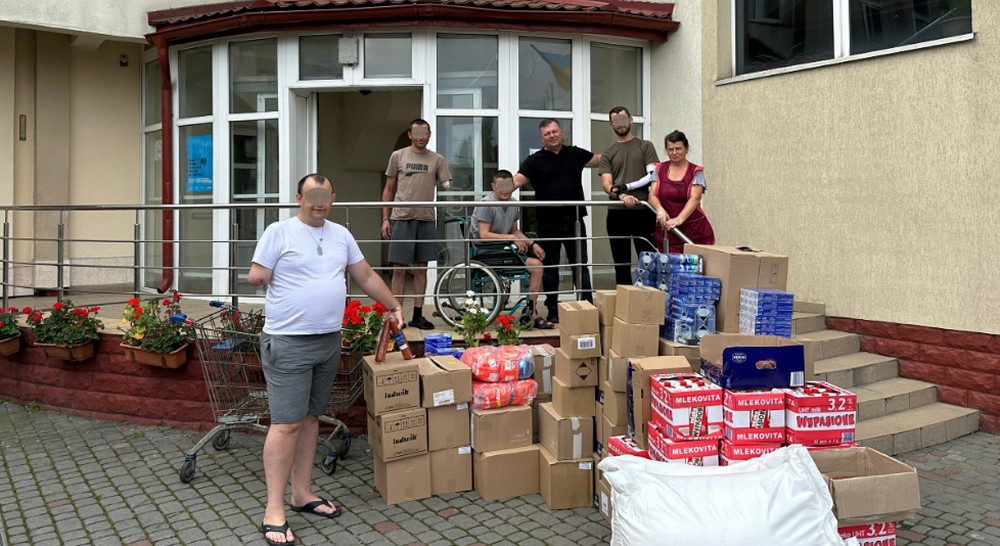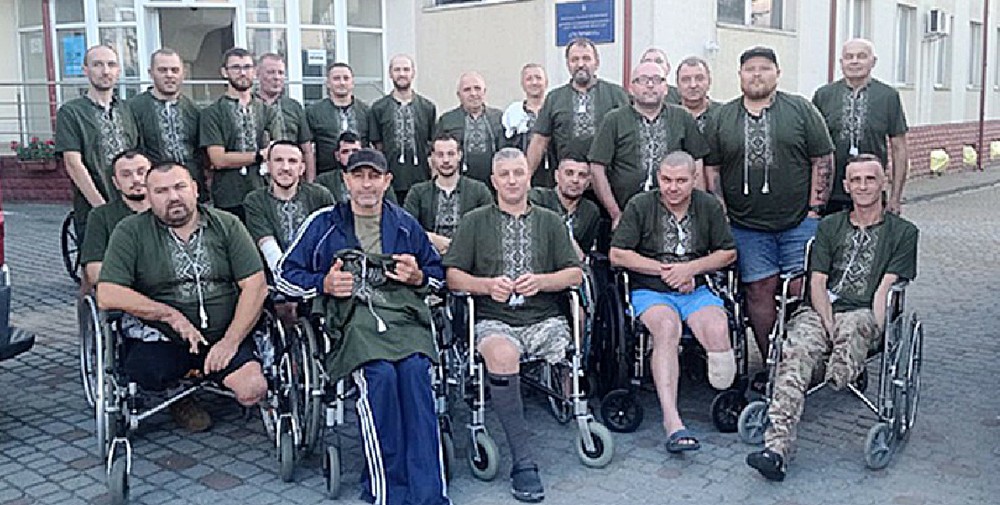
It is not scary to die, it is scary to live!
by HART staff in Ukraine
Every conflict eventually comes to an end. The current war, initiated by Russia and costing us dearly, will also conclude. Yet, there are people who will persist in their battles beyond the war’s end.
They will strive for recognition in society, for their survival with newfound limitations, and for their place in the sun. These individuals are the brave members of the Ukrainian Armed Forces who have been left disabled by the war – musicians without arms, athletes without legs, jewellers without sight.
One day, a wife came into the ward of a crippled soldier who had lost his limps on the battlefield and threw her wedding ring at him, saying, “I don’t need you like this.”
Before the onset of the war, they led fulfilling lives, pursued their passions, had families or partners they planned to marry, and harboured ambitious dreams. Regrettably, these are now memories of bygone era.
Presently, they confront a harsh reality: once robust and skilled, they now struggle with even the simplest daily tasks. Instead of envisioning future plans, their focus shifts to survival and questioning the value of life itself.
Within HART’s sphere of influence lies one of the military hospitals, where we have witnessed numerous heart-wrenching human tragedies unfold. One day, a wife entered the ward of a soldier who had lost his limps in the battlefield and threw him a wedding ring, saying, “I don’t need you like this.”
A different soldier, confined to a wheelchair, nearly shattered his mobile phone in frustration after talking with his parents who live in under Russian occupation since 2014. When he shared with them his disability from the war, their response cut deep as they scornfully responded with, “They should have killed you, you damned Ukraine – lover?” How can this poor soldier come to terms with his harsh reality after hearing such hurtful words?

However, instances of genuine love also emerged amidst the turmoil: On a particular day, upon the arrival of an ambulance at the hospital, hospital paramedics promptly greeted it with a stretcher for a soldier who had lost his limbs in combat.
Stepping out of the ambulance, the soldier’s wife declared with determination, “I will carry him myself!” She then lifted her wounded husband in her arms, embracing him like a child, and carried him into the hospital.
Yet, such displays of love are infrequent. The hospitals are predominantly filled with individuals who are grieving, disoriented, and unhappy. These men who once faced death fearlessly in battle, now were afraid to live…
These men who once faced death fearlessly in battle, now were afraid to live…
The haunting memories of brutal conflicts that claimed their comrades are coupled with feelings of anxiety, self-doubt, helplessness, and worthlessness. Many of these former valiant defenders, confronted with a bleak new reality, seek solace in alcohol, while others teeter on the brink of suicide.
Compounding this distressing situation, is the fact that not all of them have loved ones by their side. Many of their families escaped to Europe at the outset of the invasion, while others may have perished due to enemy shelling, inflicting further anguish upon these wounded defenders.
Even if the wounded soldiers have parents, spouses, children, they do not always know how to respond to the difficult psychological state of their son, husband, father. This further deepens the gap between them, poisoning life for everyone.
Only a trained psychologist or psychotherapist possesses the expertise to offer the appropriate words and support in such situations. A professional can provide an accurate diagnosis, recommend suitable treatment, and help restore the individual’s will to persevere. Every soldier, particularly those disabled in combat, requires psychological assistance.
As the war is still ongoing and the number of seriously wounded is growing every day, the scale of the problem is also increasing. and it concerns not just any particular family, but the whole of Ukrainian society. These soldiers are grappling with how to move forward in their lives, while we are faced with the challenge of not knowing how to properly treat them.
Unfortunately, there is currently a shortage of psychologists in rehabilitation centers. Therefore, HART’s plan involves engaging a broad array of specialists to work with war veterans and providing training for those interested in this field. Additionally, HART is exploring the implementation of Christian Trauma Healing courses utilized in conflict zones in other nations.
In addition, HART plans to create appropriate conditions within rehabilitation centers for soldiers to undergo physical recovery and acquire vocational skills suitable to their abilities.
And for this, we need appropriate equipment and resources. We will require exercise machines for restoring physical function, while prosthetics are crucial for soldiers who have lost limbs, offering them a sense of confidence and hope for the future.
It is imperative that we support those who bravely defended our homeland, who protected us from the enemy, who fought for and are fighting for the long-awaited victory at the expense of their lives and health!

Help us support Ukraine’s wounded soldiers through the local churches, through rehabilitation centers with trained personnel and Trauma Healing courses.

